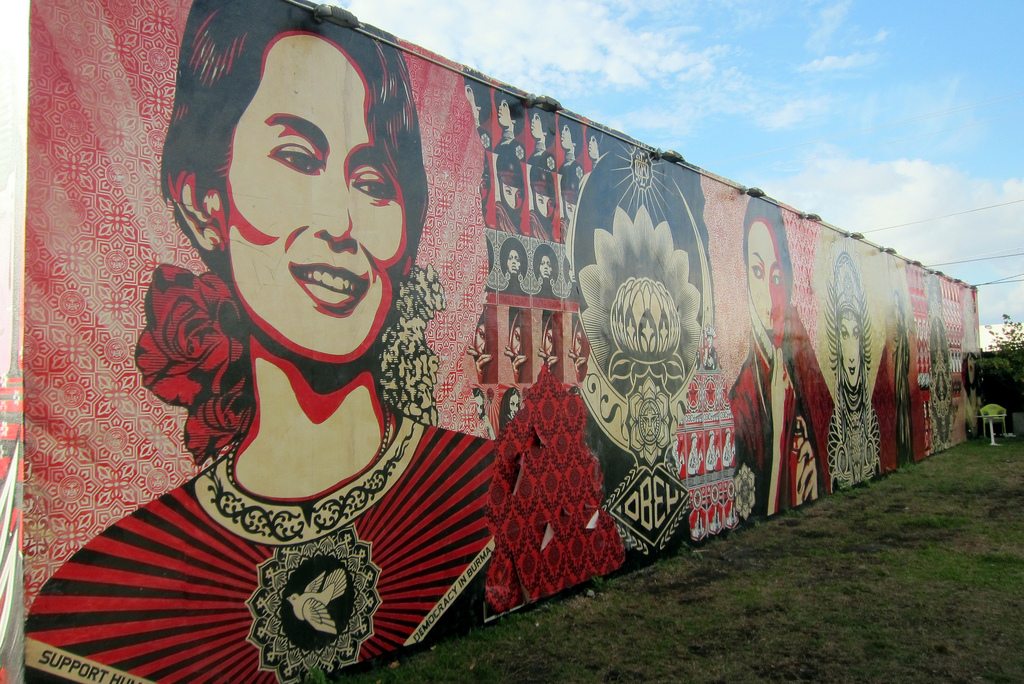Global Student Stories – 12 November 2015
Clara takes a look at issues that have been affecting students all over the world. This week we have two stories from the US, one from Myanmar and one from Brazil.
USA: Racial tensions escalate at Yale
Students at Yale University protested this week against racial discrimination they face from the institution and administration.
All students received an email from the Intercultural Affairs Committee just before Halloween. The email emphasised how some costumes should not be worn due to cultural appropriation.
They wanted the students to avoid: “feathered headdresses, turbans, wearing ‘war paint’ or modifying skin tone or wearing blackface or redface.”
However, a lecturer, Erika Christakis responded to this email outlining why the University should not be concerned with what students do. She instead encouraged everyone to dress up as they want as this is free speech, even if it may offend someone else.
In response to this, an open letter was created to inform the rest of the student body how Yale treats students of colour. Ryan Wilson, responsible for the letter, wrote: “This is us asking for basic respect of our cultures and our livelihoods.”
Yale has had its share of racial tensions in the past months. On Halloween night, a girl claims to have been turned away from a party as it was said to be “white girls only”.
This all boiled down to a March of Resilience on November 9.
Myanmar: Student protests all over
The country held its first free elections for more than 50 years this week. In 2011, the country ended military rule and has since tried to establish a democracy.
Nobel Peace Prize winner Aung San Suu Kyi won her seat as her party, National League of Democracy, taking 90%. A president will be chosen next year.
However, a few days before the voting, a student leader was arrested for his protest back in March.
On the 10th of March Lin Htet Naing had marched the streets of Yangon and called for education reforms.
The police issued a warrant against him that day; he can now face up to six years and six months of imprisonment. His wife had been arrested on the day for helping more than 300 students take part in the protest.
There have been protests against the government’s treatment of political prisoners, with a hunger strike organised by students.
Many of them had to be admitted to a nearby hospital after more than a week of fasting – force feeding was enforced.
These were the same students that were detained in March for a peaceful demonstration against education reforms. Their next hearing in court is scheduled for the 17 November.
USA: Yik Yak death threats
Yik Yak is a social media app that allows students at any university to post their thoughts anonymously. At the University of Missouri, this has become a platform for hatred.
One of the posts said: “I’m going to stand my ground tomorrow and shoot every black person I see.” A 19-year-old has since been arrested for making such threats on the social media app.
This came after a number of other incidents at Missouri. For instance, a swastika was drawn with human faeces on a resident hall.
A professor at the Missouri School of Journalism has said: “I have been called the n-word too many times to count.”
Students have retaliated against a lack of action by the university on Monday the 9th of November. They have also called for a change in curriculum.
The protesters have named themselves “Concerned Student 1950” as that was the year the university first admitted black students.
The players for the university’s American Football team refused to practice or take part in a game until the president had resigned. Some students even stopped going to class.
President Wolfe has since resigned. Yik Yak have also spoken out against the inappropriate use of their app.
Brazil: School reforms in São Paulo
At least three state schools have taken part in a protest this week following the government’s new plan to reorganise the state system. This was released last month by the Secretary of State for Education.
The new proposed plan will close down 94 schools in the state to give way to kindergarten and technical colleges for adults, while 754 of them will become either primary or secondary schools – not both.
Because of this, more than 310 million students will have to move as well as almost 75 million teachers.
The students who took part in the protest are between the ages of 12 and 16. Most of them slept overnight and would only leave after the bill was cancelled.
This protest has been backed up by many prominent individuals, such as the municipal secretary of human rights, Eduardo Suplicy, who was seen giving out bottles to the students.
Teachers at Escola Estadual Fernão Dias Leme even decided to give their lessons through a megaphone so the activists could hear.
Although it was meant to be a peaceful protest, a girl had to be taken to the hospital after inhaling pepper spray from a police officer.

Comments